Stephen Port: Officers refuse to answer watchdog's questions
- Published
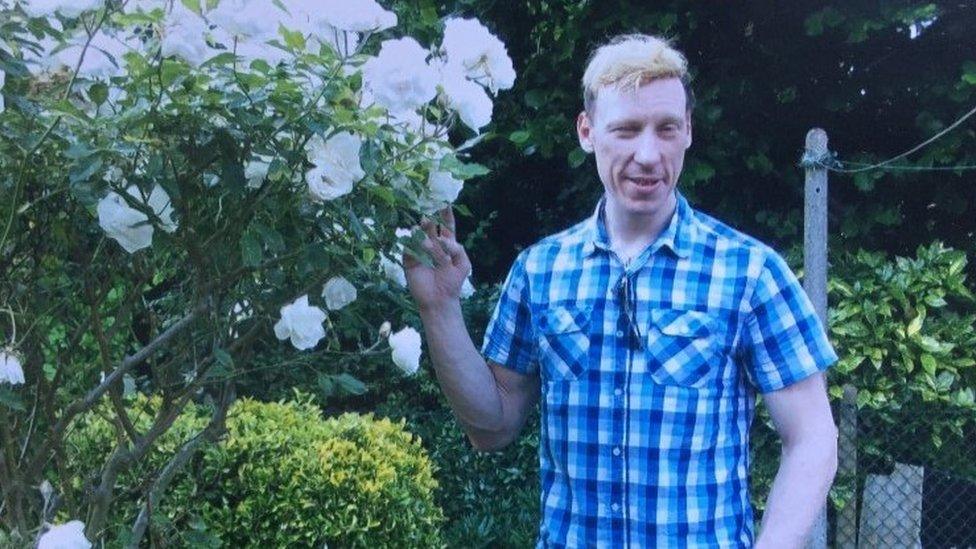
Port, now 43, from Barking in east London, was sentenced to a full life term in November 2016
All but one of 17 Met officers under investigation for the initial response to the serial killer Stephen Port refused to answer questions during interviews with the police watchdog.
In November 2016 Port was convicted of murdering four young men.
Police ignored chances to catch him earlier, with the deaths not treated as murders until weeks after the last one.
The Independent Office of Police Conduct (IOPC) said its work was "nearing completion."
It refused to comment on details of the interview process.
The watchdog - formerly known as the IPCC - originally served misconduct notices on the officers in September 2016, prior to Port's trial.
In March the following year - after Port had been jailed - the body said its inquiry was moving into the "interview phase".
However, when - after two months - this had still not started the victims' families publicly expressed anger at the delay.
In response, investigators told the BBC that a large volume of evidence had been disclosed to the officers, who had "asked for time to understand and absorb the information that will be put to them in interview, which we have agreed so that the evidence we collect from them is as robust and comprehensive as possible."
Then, last summer, the watchdog said that interviews were "under way".
However, the BBC now understands only one of the 17 officers freely answered questions from investigators.
Seven were interviewed under gross misconduct notices - and ten under misconduct notices.
Sixteen of them - as they are entitled to - provided "no comment" interviews and instead submitted prepared statements.
One officer, who was interviewed under a misconduct notice, has since resigned from the force, meaning that even if found to have breached standards of behaviour there is no system of delivering a sanction to them.
Between June 2014 and September 2015, Port murdered Anthony Walgate, 23, originally from Hull, Gabriel Kovari, 22, from Lewisham, Daniel Whitworth, 21, from Gravesend, Kent, and Jack Taylor, 25, from Dagenham, east London.
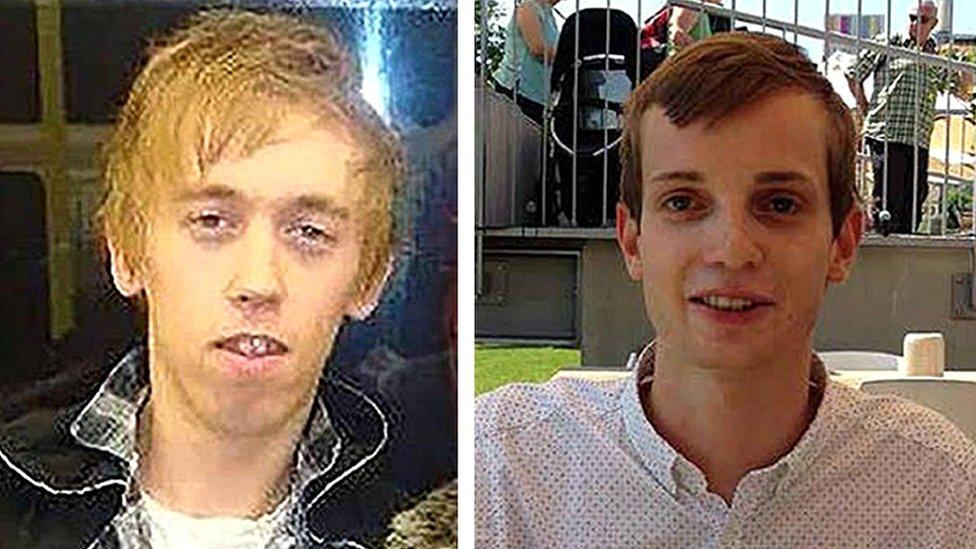
Anthony Walgate (L) and Gabriel Kovari (R) were Port's first victims
Port met his victims online, including through the dating app Grindr, before luring them to his flat in Barking, east London, where they were drugged before being raped.
He murdered the four men by giving them fatal overdoses of the date-rape drug GHB.
The first victim - Anthony Walgate - was found outside Port's flat and the other three either in or next to a nearby churchyard.
Port was jailed for his initial lies about the circumstances of the first death, but police accepted his subsequent excuses - leaving him free to kill again.
While on bail - prior to being sentenced - Port struck twice more and once again after coming out of prison.
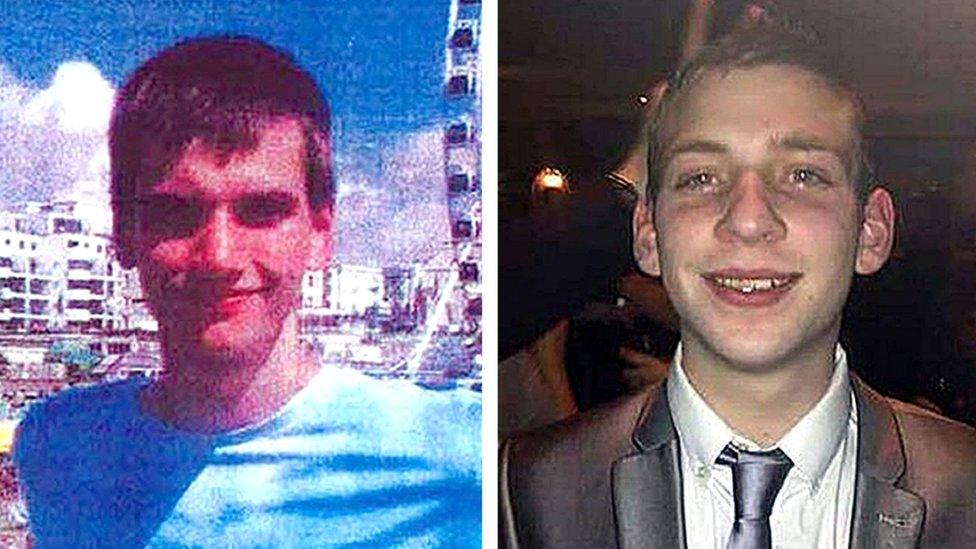
Daniel Whitworth (L) and Jack Taylor (R) were also killed by Port
Port falsely linked his second and third victims together in order to cover up his crimes.
A fake suicide note found in Daniel Whitworth's hand - which had in fact been written by Port - said he had accidentally killed his lover Gabriel Kovari and was taking his own life as a result.
In fact, the two victims did not know one another.
Police accepted the note at face value and treated the deaths as non-suspicious, despite concerns being raised by people close to both men.
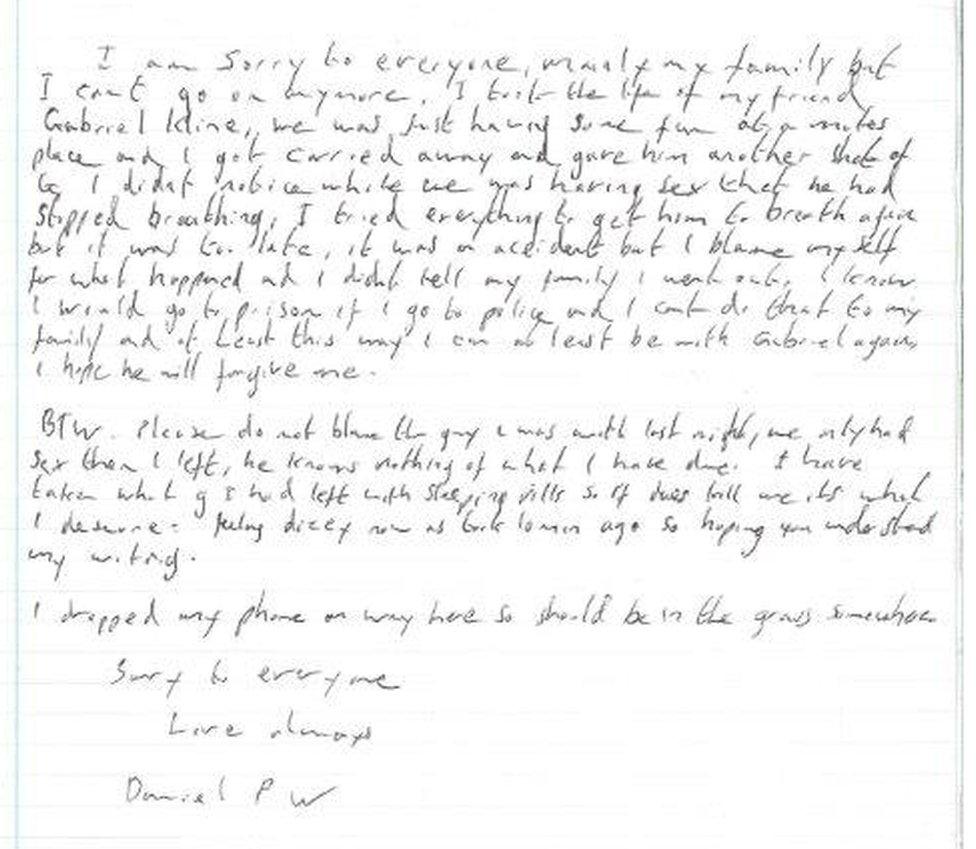
The fake suicide note, written by Port, sought to absolve him of any part in Mr Whitworth's death
An investigation by the BBC revealed flaws in the evidence given by police at the original inquests for Mr Whitworth and Mr Kovari.
After Jack Taylor's death, police were pressured into treating it as suspicious after his family began their own investigation and spotted similarities to the other three deaths.
Port was captured after the case was passed to specialist homicide detectives.
The initial response had been led by local officers from Barking and Dagenham.
None of the officers from the successful inquiry are under investigation by the IOPC.
In a statement, IOPC Regional Director Sarah Green said: "Our investigation is nearing completion, and I will need to consider the final report carefully before coming to any view on its findings.
"We continue to keep the families of Stephen Port's victims, and the officers under investigation updated on our progress."
Scotland Yard said: "We await the conclusion of an independent IOCC investigation which is currently ongoing.
"It would be inappropriate to comment further at this stage."
Inquests into the four deaths are expected next year, with a pre-inquest hearing scheduled to take place on 14 August.
- Published28 November 2017
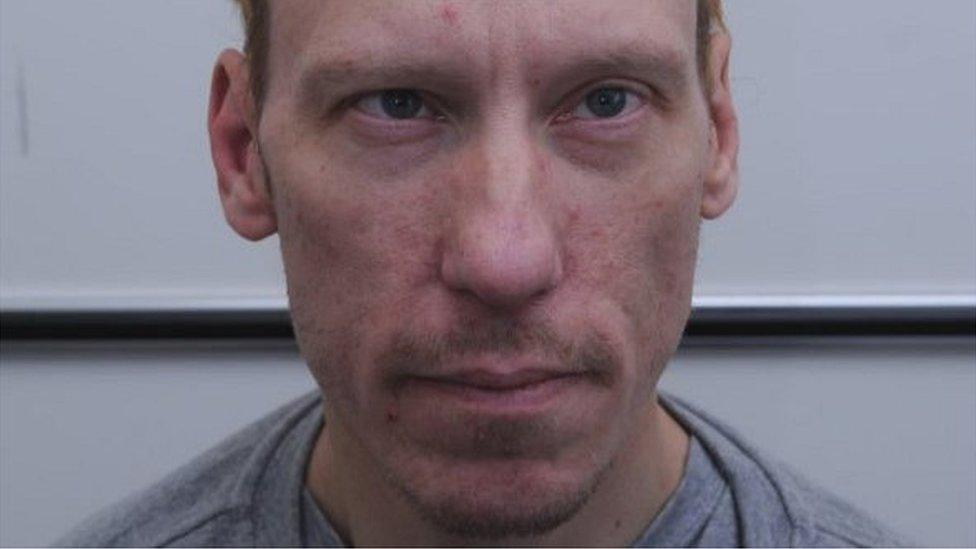
- Published19 March 2018
